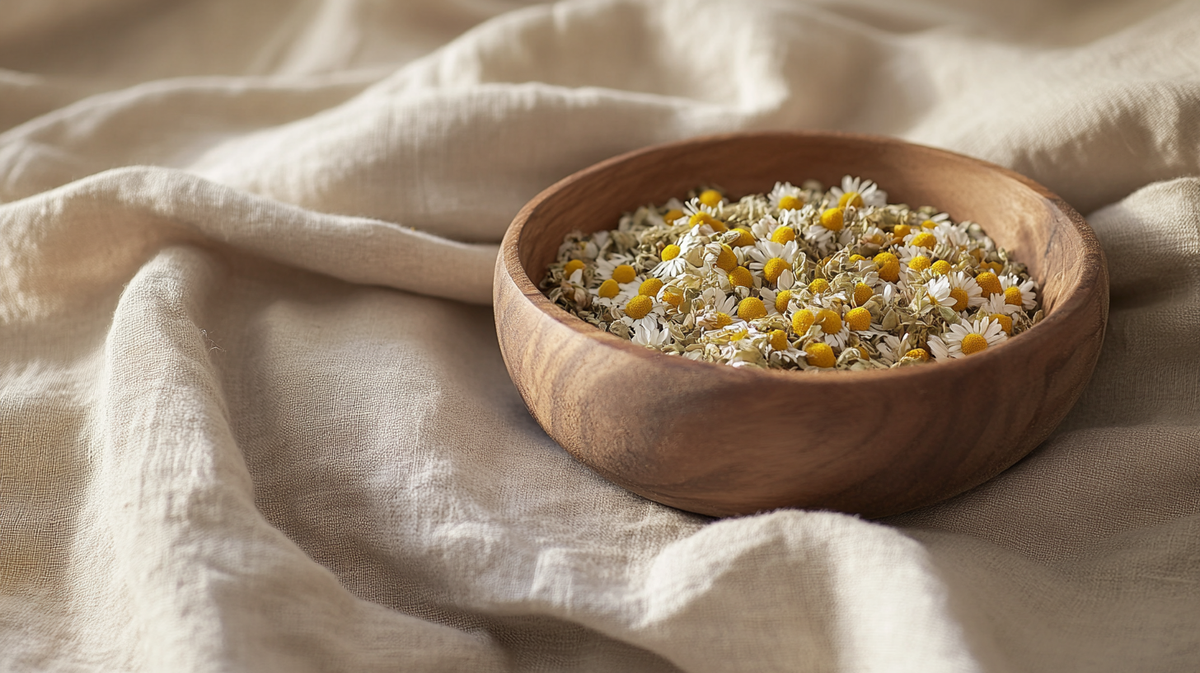
The Best Drink for Anxiety: How Tea Can Help You Relax and Find Calm
|
|
Time to read 5 min
|
|
Time to read 5 min
In today’s hyperconnected and always-on world, anxiety has become a daily companion for many. Whether it’s caused by work stress, emotional overload, or simply the pace of modern life, millions are seeking natural ways to unwind and regain their emotional balance. That search often begins with one critical question: What to drink for stress and anxiety?
While some reach for coffee, wine, or sugary sodas, those options often make the problem worse in the long run. The real answer lies in a much more ancient, nourishing remedy: tea.
Tea isn’t just a warm beverage—it’s a ritual, a therapeutic experience, and most importantly, one of the best drinks for anxiety relief.
Before diving into specific types of teas, let’s understand why tea is one of the best things to drink when feeling anxious.
Many teas contain amino acids like L-theanine, which increase alpha brain waves. This state is associated with relaxation and a focused, meditative calm, without drowsiness.
Certain herbs used in teas have been scientifically shown to lower cortisol levels, reduce heart rate, and promote better sleep, making them ideal for those asking, “What to drink for stress and anxiety?”
The act of preparing tea itself—boiling water, steeping leaves, sipping slowly—is a mindfulness practice. It grounds your body and mind in the present.
Let’s explore the most effective teas you can drink to help ease anxiety, naturally and gently. These can be enjoyed hot or cold and are widely available as loose leaf tea, tea bags, or in blends.
Chamomile is one of the most popular and well-researched teas for anxiety. This daisy-like herb works as a mild sedative, promoting sleep and reducing nervous tension.
Why it helps:
Contains apigenin, an antioxidant that binds to brain receptors and promotes calm.
Helps reduce insomnia, which often accompanies anxiety.
If you’ve been wondering what to drink for stress and anxiety before bed, chamomile tea is your go-to choice.
Lavender isn’t just for aromatherapy—it’s also a powerful anti-anxiety tea. Lavender tea has a subtle floral flavor and is especially effective for people with tension headaches and digestive symptoms linked to stress.
Why it helps:
Studies show it reduces heart rate and blood pressure.
Can calm a nervous stomach and restlessness.
Lemon balm (Melissa officinalis) is a member of the mint family and is known for lifting mood and reducing anxiety. It works as a gentle tonic for the nervous system.
Why it helps:
Boosts GABA (a calming neurotransmitter) in the brain.
Especially helpful when stress leads to irritability or brain fog.
Still asking yourself what to drink for stress and anxiety during a busy workday? Try lemon balm tea with a hint of honey.
Green tea may not be the first thing you think of when it comes to relaxation, but it contains L-theanine, a unique amino acid known to reduce stress without causing drowsiness.
Why it helps:
Improves focus while reducing anxiety.
Low caffeine, balanced by calming compounds.
Tip: Choose decaffeinated green tea or matcha with lower caffeine levels if you're sensitive.
Used for centuries in Indian Ayurvedic medicine, tulsi tea is one of the best herbal solutions for chronic stress and adrenal fatigue.
Why it helps:
Adaptogenic: helps the body cope with physical and emotional stress.
Supports mood, clarity, and immune health.
Tulsi is often included in Ayurvedic anti-stress tea blends and works well in both morning and evening routines.
While peppermint is best known for its stomach-settling abilities, it also helps ease physical tension, which can be a symptom of anxiety.
Why it helps:
Relaxes muscles and relieves mental fatigue.
Especially effective for stress-induced digestive issues like IBS.
Valerian is a strong herbal sedative best reserved for nighttime use. It helps people who experience racing thoughts, insomnia, or panic before bed.
Why it helps:
Increases GABA availability in the brain.
Often used in natural sleep aids and night-time teas.
Wondering what to drink for stress and anxiety when you can't sleep? Valerian root tea is a gentle and natural solution.
To truly benefit from your calming tea, preparation matters. Follow these tips for the perfect anxiety-reducing tea ritual:
Impurities in water can alter the flavor and reduce the absorption of nutrients.
Flowers (e.g., chamomile, lavender): 5–7 minutes
Roots (e.g., valerian): 10–15 minutes
Use a favorite mug. Sit in silence. Practice deep breathing while your tea steeps. Ritual enhances the calming effect.
Timing your tea can enhance its effects:
Morning: Green tea or tulsi for clarity without a caffeine crash.
Afternoon: Lemon balm or peppermint to calm midday stress.
If you’re trying to find what to drink for stress and anxiety every day, quality matters.
Convenient and fast
Often lower in potency
May include microplastics or additives
Full flavor and potency
Rich in essential oils and antioxidants
Better value over time
Verdict: Go for loose leaf whenever possible, especially for medicinal herbs.
Add honey for antimicrobial and mood-boosting effects
Use lemon to brighten flavor and increase antioxidant absorption
Yes! While not a cure-all, the right tea can significantly lower stress markers and improve your emotional state.
1–3 cups per day is ideal. Avoid overconsuming sedative herbs like valerian.
Try warm lemon water with honey, or herbal infusions like hibiscus or rooibos as gentle alternatives.
If you're still wondering what to drink for stress and anxiety, look no further than your teacup.
From ancient Ayurvedic blends like tulsi tea to modern favorites like chamomile and lemon balm, there’s a calming tea for every mood and moment. Unlike synthetic remedies, tea offers a natural, sustainable, and enjoyable way to reduce stress, calm the mind, and care for your body.
So next time anxiety strikes, skip the caffeine or alcohol—brew a warm, healing cup of tea instead. Your mind will thank you.
Describe your products, collection etc...
What are you looking for?





